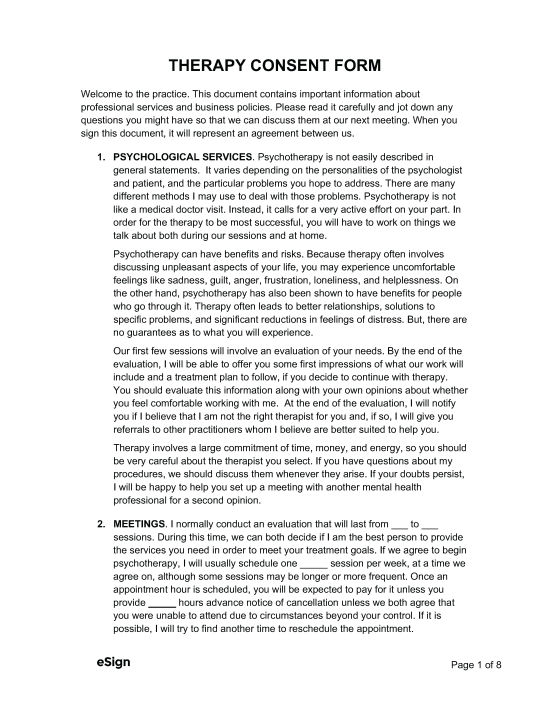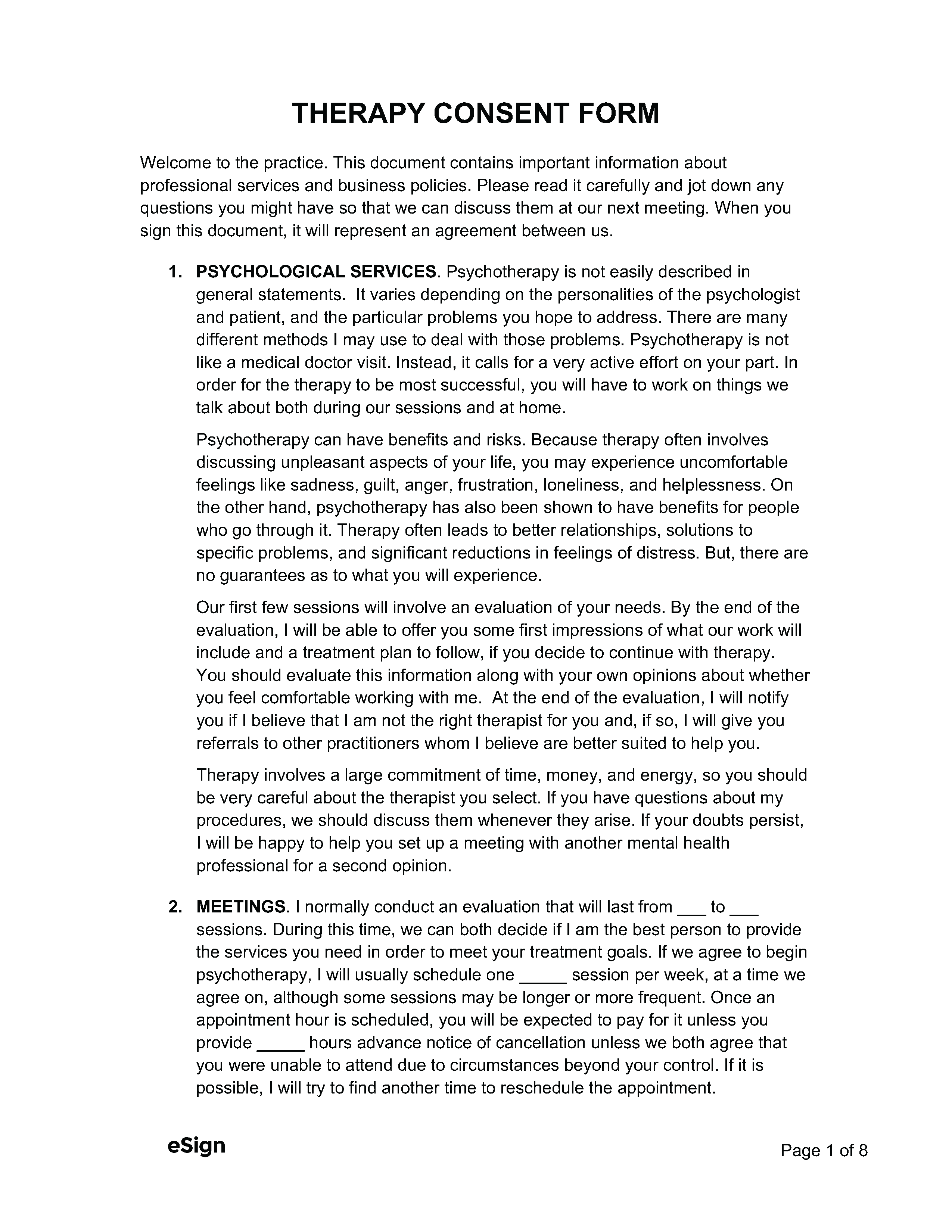HIPAA Notice of Privacy Practices
If the therapy practice is considered a covered entity by the Health Insurance Portability and Accountability Act (HIPAA), then a HIPAA Notice of Privacy Practices form must be drafted and given to each client or patient.[1]
Acquiring Informed Consent
This document is used to gather informed consent from the patient, which must be obtained as early as possible in the therapeutic process.[2]
Informed consent means that the therapist explains:
- How the therapy process will work.
- The anticipated cost.
- The limits of confidentiality.
The client/patient must also be allowed to ask questions and have them answered accordingly.
When Patient Incapable of Informed Consent
- The patient must be given a full explanation of the therapy.
- The psychologist/therapist should seek the assent of the individual.
- If legally required or permitted, obtain consent from a legally authorized representative.
- The psychologist/therapist must always consider the individual’s best interests and preferences.

